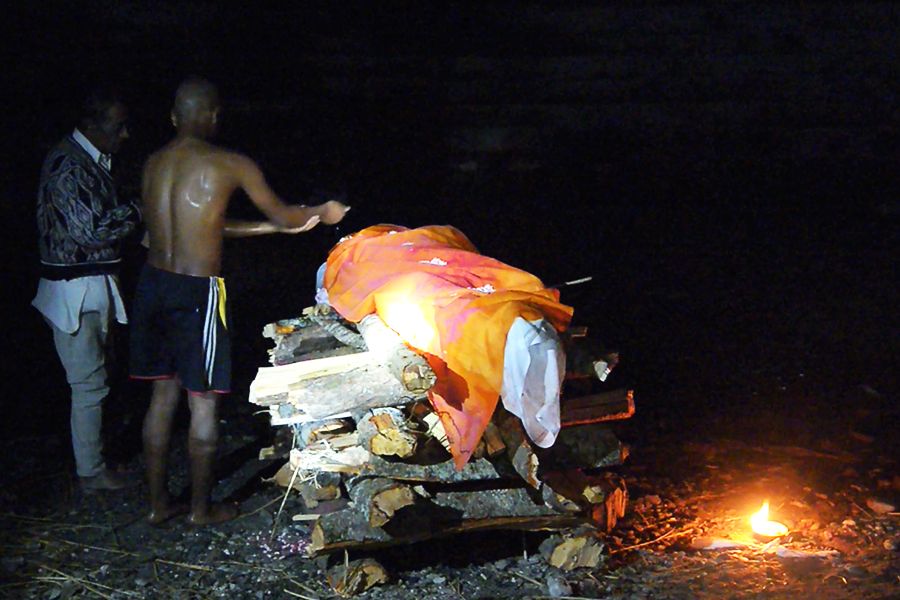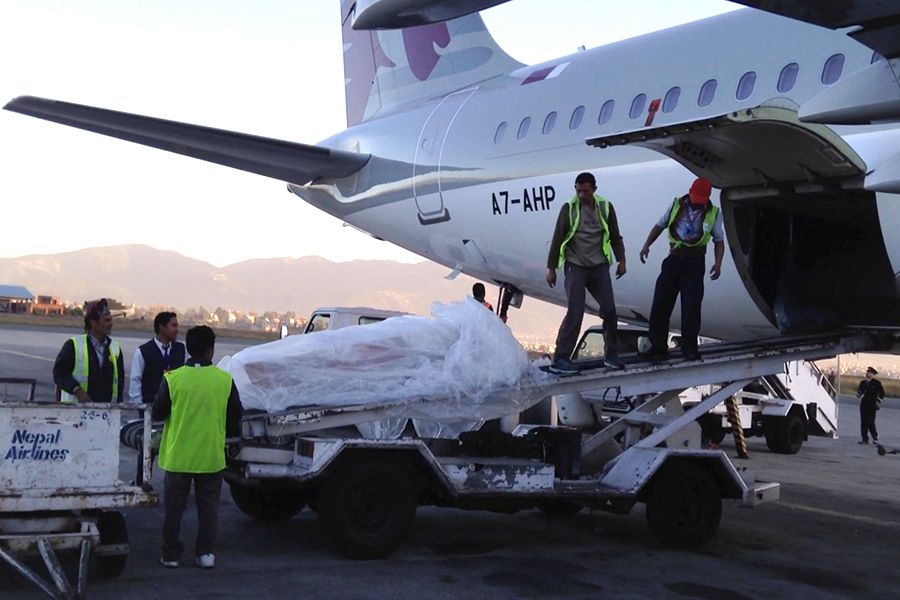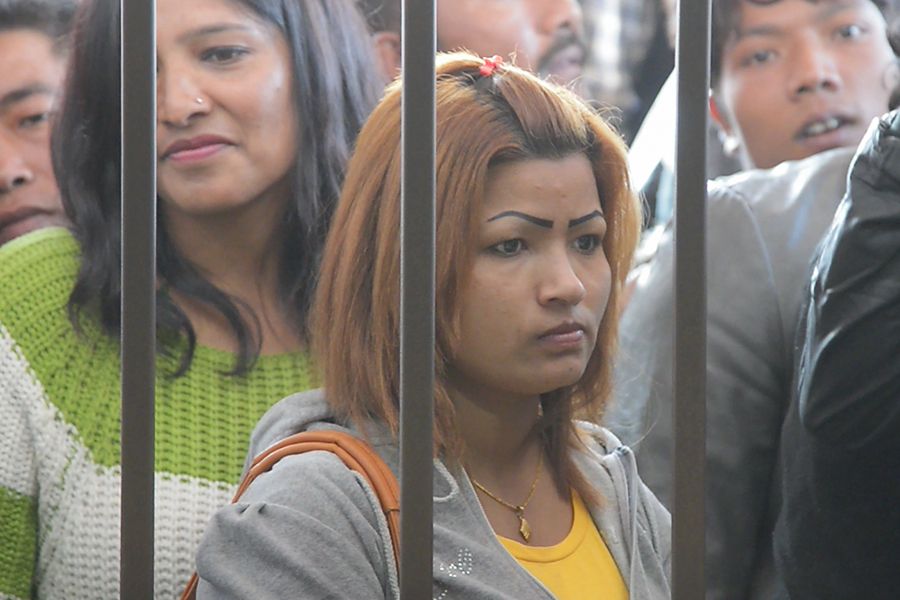At first, Pramila Dangol’s body refused to burn. Her son inserted a heap of dry straw in the bed of wood and, soon, the fire grew so fierce that you could hardly hear her wailing relatives. Dangol was being cremated after her relatives finally received her body from Kuwait, where she had died while performing her duties as a domestic worker for a local family.
When Dangol, 38, left her family to work in Kuwait a year and half ago, she had promised to send money every few months. But the money came only once, and then came her body — frozen for three months in a morgue in Kuwait — in a casket at the international airport in Kathmandu. She had died in August while at work. The official cause of death was “inefficient oxygen,” according to the medical reports provided to her family, who found out about her death only in November.
Dangol was among hundreds of Nepalis who leave home every day to work in Persian Gulf states — and among half-dozen dead bodies that return every week. Like the others before her, she'd left in hopes of earning a better salary than she could at home, and building better lives for her family.
But Dangol’s woes had begun at home, before she'd left for Kuwait. Abused by her husband who drank night and day, she secretly sought help from two men who ran a recruiting agency, locally referred to as a "manpower company," and collected enough money to buy her way abroad. When her aunt told her about the dangers and abuses migrant workers faced in the gulf, she remembers Dangol responding, “I’m getting beaten up here, and I’ll get beaten up there, so it really doesn’t matter.”
Dangol left for India. From there, the manpower agency flew her to Kuwait. Although no one in her family can say for sure what she did there, her aunt said that Dangol had told her during a phone conversation that she worked as a housekeeper, which is often the case for women. Men typically work construction jobs.
According to a report by the Nepal Institute of Development Studies (NIDS), more than 225,000 female migrant workers work in the Persian Gulf countries, but only only 60,000 of them have been formally documented since 2007. Kuwait alone has about 28,000 undocumented Nepali women workers. More than 2,000 people seek government permits every day to go abroad and work, based on the numbers provided by Department of Foreign Employment in Kathmandu.
Dangol's family doesn't know how she was killed. The official report says she died from lack of oxygen while operating an air conditioning machine. But family members suspect foul play, especially because they were not notified until three months after she died. Domestic workers in Saudi Arabia and Kuwait are not protected by labor laws, and their fate can depend on the family they work for.
According to a NIDS survey of Nepali migrant women in Kuwait, one-fifth said they'd faced physical or emotional abuse in the household where they work. Migrant Rights, an organization that works for the rights of migrant workers in the Middle East, said more than 30 reports of exploitation and abuse are received by the Nepali Embassy in Kuwait every week. Since 2010, at least 2,247 women working as housemaids in Kuwait have had to be pulled out of their jobs by the Nepali Embassy after complaining of abuse.
Because she was an undocumented worker, Dangol's family will not receive any compensation or insurance benefits from her death.
Waiting for the casket to arrive at the airport, Dangol’s son, Rajiv, 18, said he knew about his mother’s plan to go to Kuwait just two days before she flew. She told him it was going to be a better life for him and his sister. With a father who is a drug addict, he says, he now feels responsible to take care of his family.
He says that, after finishing high school, he wants to pursue his dream of being a cook in a hotel.
“But I won’t be earning enough by working in Nepali kitchens,” he said. “I want to go to a gulf country and work in a hotel.”





